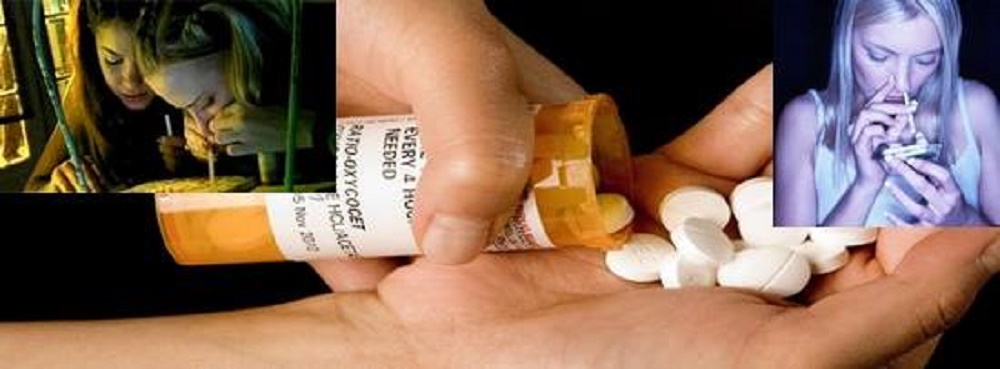CULLMAN – With the multitude of addictions running rampant in our community, we, at The Cullman Tribune, feel a series of articles is warranted. Alcohol addiction. Food addiction. Opiate addiction. Methamphetamine addiction. Each, left untreated, has deadly consequences. This week, we begin weekly installments examining addictions and their impact on the lives of people in our community.
Recently, Cullman County Coroner Jeremy Kilpatrick issued a public service announcement voicing his concern over the opiate and heroin abuse problem in our county. In his announcement he stated that “heroin-related deaths are up 200 percent compared to the same time last year.”
Last year’s numbers tell a grim story. In Cullman County, we saw 19 total suspected drug overdose deaths, with three of those being from heroin overdoses. Kilpatrick noted that a fourth heroin overdose death occurred after a person spent several days in the hospital after the initial overdose. Also seen was one methamphetamine death and one more death due to “methamphetamine/other drug.” Lastly, 13 of the 19 overdose deaths in Cullman “were polypharmacy on prescription drugs (some legally obtained and some not).” Polypharmacy means the use of three or more medications/drugs at a time.
Within the rooms of recovery, the offices of qualified therapists and social workers and in self-help literature everywhere, we are told what we already know. Addiction is a family disease. Every person who loves the addict who is using his or her drug of choice faces emotional, physical, financial and mental consequences.
But, what is an addiction?
The American Society of Addiction Medicine (ASAM) gives a brief definition of addiction as “a primary, chronic disease of brain reward, motivation, memory and related circuitry. Dysfunction in these circuits leads to characteristic biological, psychological, social and spiritual manifestations. This is reflected in an individual pathologically pursuing reward and/or relief by substance use and other behaviors.
“Addiction is characterized by inability to consistently abstain, impairment in behavioral control, craving, diminished recognition of significant problems with one’s behaviors and interpersonal relationships, and a dysfunctional emotional response. Like other chronic diseases, addiction often involves cycles of relapse and remission. Without treatment or engagement in recovery activities, addiction is progressive and can result in disability or premature death.”
Providing a simpler definition with a car engine used as an analogy is Program Director of the Walker Baptist Hospital Detox Program, Christopher Allen. He explained, “Addiction is a change in the way the brain works, specifically the reward centers of the brain.
“Dopamine is a chemical in your brain that makes you feel good. There are a lot of natural, healthy things that boost your dopamine; a good meal, exercise, hanging out with friends, love and sex.
“Think of your brain as a car engine and dopamine is the gas pedal. Drugs and alcohol also push that gas pedal by boosting your dopamine.
“The problem is that drugs and alcohol push it far beyond your brain’s natural limits. If this happens occasionally, it’s no big deal, the brain can recover; however, after continued use the brain starts to lose some of its ability to make you feel good because it has been pushed too hard. So the person needs to drink or use a little bit more to get that same feeling.
“Then a little bit more. And then more often. Before long the person can’t feel good without drugs or alcohol because the brain has simply lost the ability to produce dopamine the way it needs to. At this point, the person needs drugs or alcohol ‘just to feel normal.’ They are addicted.”
Based on scientific evidence, we know that addiction is a disease and not a moral deficiency. *
This can be a difficult fact to accept when families witness the behavior and antics of their addict loved ones. Addicts are often viewed as being weak and poor decision makers. “If only he would make better choices, everything would be better.”
Yet, it has been widely accepted as fact, based on scientific evidence, by the American Medical Association, National Institute on Drug Abuse and National Institute on Alcohol Abuse and Alcoholism, that addiction is a disease just as heart disease, diabetes and cancer are diseases.
Addiction meets the four criteria necessary for the medical definition of a disease.
First, addiction is primary- meaning it isn’t caused as a result of another condition. Second, the disease of addiction is progressive. Without treatment interventions, the addiction grows stronger. Next, addiction is chronic, as it cannot be cured. While the disease can be put into a remission of sorts, addiction never goes away. Lastly, left untreated, the disease of addiction is fatal. It will kill if left to its own devices.
Allen explained, “We describe addiction as a disease because it operates like most other chronic diseases. The best comparison is diabetes. Diabetes is a disease of the pancreas. The pancreas just doesn’t work the way it’s supposed to. Addiction is a disease of the brain as the brain no longer works the way it’s supposed to.
“If a person treats their diabetes it gets better and if they ignore it, it usually gets worse. Without treatment, most addicts and alcoholics will keep getting worse.
“A diabetic doesn’t have to die from diabetes. They can get treatment, make some changes and live a long life. An addict or alcoholic will always be an addict or alcoholic but that doesn’t mean they will always drink or use. If they treat the addiction and make some specific changes, they can live a long, happy life.”
Defining addiction as a disease does not ease the pain families endure daily watching their beloved sons, daughters, brothers, sisters, mothers and fathers battle their demons. No young child wishes to grow up to be a drug addict. No one with a food addiction wishes to become morbidly obese facing deadly consequences based on their food and lifestyle choices. No alcoholic looks forward to the day when, although the job and family have been maintained for years in the midst of the addictive drinking, it all comes tumbling down around him or her. That’s never the plan. No one chooses to be an addict.
* http://qrne.ws/nejm
Look for part 2 of this series in the Thursday edition of The Cullman Tribune.































